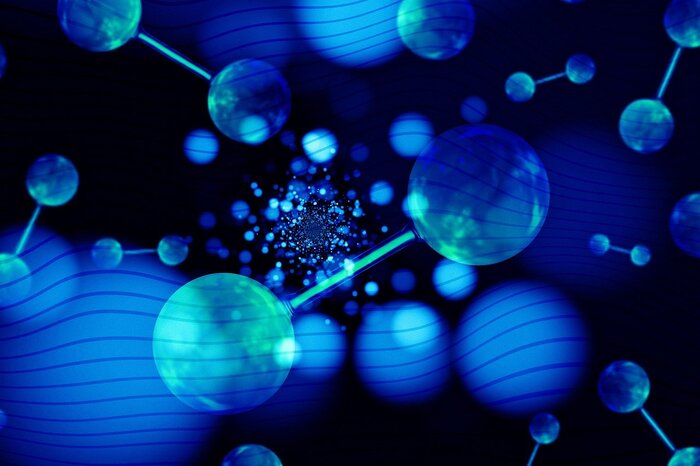For the first time, a synthetic molecule has been obtained that is a perfect double of the natural one: it behaves in exactly the same way, even if it is 10 times larger to facilitate the detailed study of its properties. The result, published in the journal Science, was obtained thanks to a quantum simulator by the Dutch Radboud University. The molecule that the researchers have chosen to replicate is benzene, a natural constituent of petroleum, which opens the way, in the future, to applications hitherto unthinkable, such as new materials for new generation computers, gives a great boost to miniaturization, allowing to realize electronic devices based on a single molecule.
"We wanted to create artificial molecules that resembled natural ones," says Emil Sierda, who led the study. "So we developed a system that allows us to trap electrons (the fundamental constituents of atoms along with protons and neutrons): electrons surround a molecule like a cloud and we therefore used those trapped electrons to build an artificial molecule. The resemblance to the natural one is disturbing."
Quantum simulators, such as the one used in the study, are special devices designed to provide information about specific physical problems. This technique has already been exploited in several experiments, which include ultra-cold quantum gases, superconducting circuits and even so-called time crystals: a new type of matter that repeats periodically over time, just as a normal three-dimensional crystal repeats periodically in space. Quantum simulators provide an alternative to classical computers, and even supercomputers, to understand the properties of complex systems: they allow very precise control and the ability to freely vary the parameters of the system.
"Making molecules is difficult, and it's even harder to understand how they react, such as how they change when they are deformed or altered," says Alex Khajetoorians, co-author of the study. "We wanted to simulate molecules, so that we could modify them in ways almost impossible with natural ones. In this way – adds Khajetoorians – we can say something about natural molecules without having to face the challenges they present, such as their ever-changing form".
According to the researchers involved, the possible applications of this technique are vast. For example, by using a quantum simulator it is possible to understand molecules and their reactions much better, a factor that will help in many fields of research. It would also be possible to simulate new materials for the computers of the future, evaluating their properties before moving on to the actual realization. In the more distant future, it may also become possible to study chemical reactions step by step as in a slow-motion video, or to make artificial electronic devices based on a single molecule, which would allow, for example, to reduce the size of a transistor to that of a computer chip.






/cloudfront-eu-central-1.images.arcpublishing.com/prisa/2CTJ5HLPXBE4NGSHP6SCZIQ4IM.jpg)


